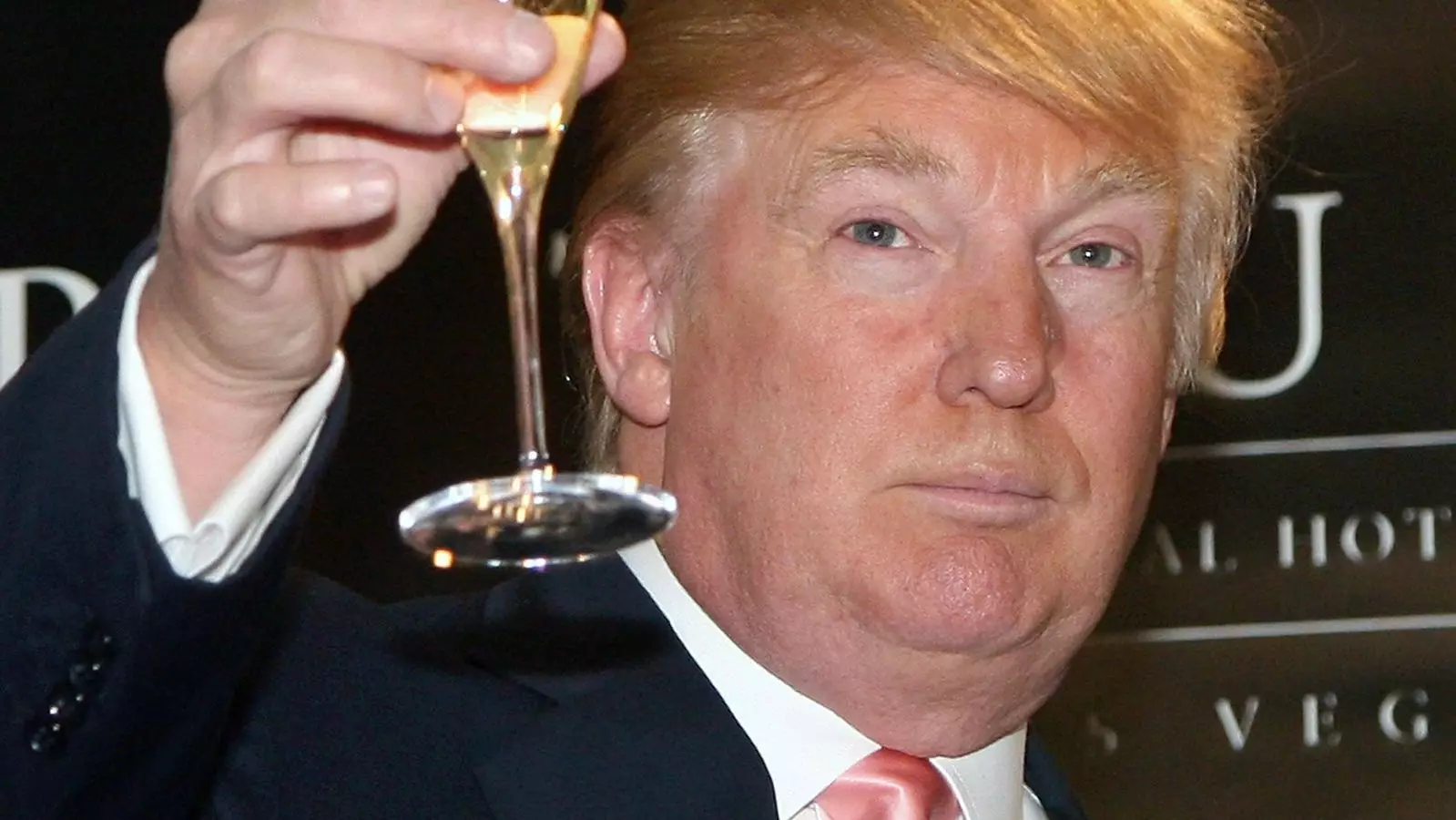In recent discussions surrounding U.S. trade policy, the suggestion of imposing steep tariffs on European wines has surfaced with the promise of bolstering American wineries. However, this approach rests on a precarious assumption: that making imported wines prohibitively expensive will lead consumers to favor domestic over foreign products. This perspective, while superficially appealing, fails to consider the intricate dynamics that define the wine industry both in America and worldwide. The tariff envisioned, a staggering 200% on all wine and spirits imported from the EU, threatens not only to destabilize the market but also to set American producers on a path of self-inflicted harm that could reverberate through the entire industry.
A Compromised Distribution Network
To fully grasp the implications of such tariffs, one must understand the realities faced by distributors and retailers. Unlike other products, the wine industry thrives on diversity and selection. A mid-sized wine distributor in the U.S. typically carries a rich tapestry of offerings—from classic French Bordeaux to innovative Oregon Pinot Noirs. The sudden inability to access EU wines due to draconian tariffs would not simply create room for American brands; it would obliterate the existing frameworks that sustain the business. Picture an Illinois distributor who balances French imports with local selections. With half their offerings subjected to outrageous tariffs, they face financially annihilating decisions that could lead to layoffs, closures, or a reduction in consumer choice.
The U.S. wine distribution model relies on its breadth for survival. When key players in this network collapse, the repercussions are not confined to those businesses; they cascade down to producers who depend on those distributors to showcase their wines. The belief that squeezing out competition can create market space neglects the essential collaborative nature that allows the entire wine ecosystem to thrive.
Consumer Behavior: The Unpredictable Wild Card
Expecting consumers to hastily switch their allegiance from fine French wines to American labels at a moment’s notice is a naive assumption. Wine consumers are often discerning, possessing a preference for quality and authenticity that transcends national boundaries. Traditionally, they don’t respond positively to price hikes, especially when those increases are accompanied by diminished options. Instead of embracing domestic wines, many consumers may recoil from the entire category, gravitating toward alternatives like craft cocktails or beer. This shift away from wine consumption inflicts collateral damage not just on international imports, but equally devastates American farmers and vintners.
The ongoing trends illustrate an alarming reality. Younger generations are increasingly eschewing wine altogether in favor of other beverages, reflecting changing tastes and priorities. In such a context, the introduction of drastic tariffs could exacerbate this trend, further diminishing the appeal of wine and weakening its cultural status.
The Uncertain Politics of Tariffs
The political landscape around tariffs is fraught with unpredictability. The rhetoric of American first and the false notion of ‘punitive’ protectionism often obscures the broader economic ramifications. Historical data demonstrates that previous tariffs have proven detrimental rather than beneficial. The last notable wave of tariffs imposed by the Trump administration resulted in declines in both imports and domestic sales, showcasing that the U.S. wine industry suffered significantly when it relied on artificial barriers.
Furthermore, imposing tariffs invites tit-for-tat repercussions. If the proposed levies on European wines take effect, European countries are likely to retaliate with their own sanctions, targeting American exports. As a result, products like bourbon and American craft beers could face similar punitive tariffs, further endangering sectors that boast strong legacies and cultural significance in the U.S.
A Call for Constructive Solutions
What the American wine industry genuinely needs is investment and growth strategies, not isolationist policies. Addressing structural challenges such as distribution inefficiencies and evolving consumer preferences demands innovation rather than deterrence. Enhancing sustainable practices to counter climate change, improving accessibility, and fostering new interest among younger drinkers should be the focus. Rather than pushing European wines aside, American producers should strive to elevate their standards to stand shoulder to shoulder with their peers across the Atlantic, winning consumer loyalty through quality and excellence.
In more severe terms, this would mean not merely surviving in a compromised terrain but thriving in an interconnected marketplace where competition serves to enhance quality and consumer experience. The future of American wine does not lie in tariffs and isolation, but in collaboration, resilience, and a genuine commitment to excellence in an ever-evolving global landscape.


Leave a Reply